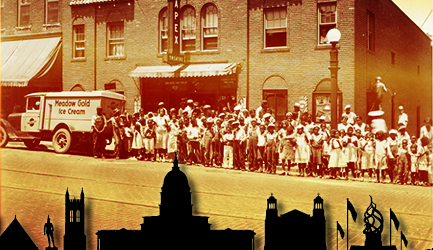Playing catch-up
By now, most of us utilize them innately. Computer skills are built into our neuron connections. We maneuver a mouse without a thought. We scroll through a feed, click links, refresh a page, easy as breathing. But what most people who've embraced the digital age tend to take for granted is that everyone knows that stuff. Not so.

The evolution of technology. Some people are stuck in the typewriter age.
While 96% of jobs in the U.S. require digital communication usage, not all Americans are comfortable using computers or learning how to navigate the Internet. The pressure is on, however, for them to learn.
According to the U.S. Department of Commerce, of the 28% of Americans who do not use the Internet, they're disproportionately those with low income, disabilities, seniors, minorities, the less educated and the unemployed. The library serves as the great equalizer and is the leading institution for teaching digital literacy.
In the library's computer lab on a Thursday morning, bright and early, a dozen people file into Internet Introduction. The class is a follow-up to Taming Your Mouse, which teaches participants how to scroll and click.
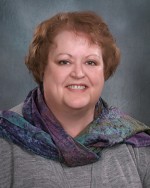
Kate Hughes, computer classes teacher
“I tell them that a mouse is just like a remote for your TV,” says Kate Hughes, one of two of the library’s full time computer trainers. “This is the remote for your computer. You have to help them make those connections.”
The classmates make small talk about what they anticipate they will learn.
“You can get the Farmers Almanac online for free,” an elderly woman shares.
“I heard you can get a lot of things for free on the computer,” agrees another attendee.
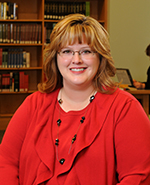
Shari Schawo, computer classes teacher
The class focuses on utilizing the Internet to find county records, visit virtual museums and delight over live webcams. The group watches in awe as penguins at the Kansas City Zoo take their first dip of the day.
It’s not about the pages they’re visiting. It’s about learning where to type web addresses, recognizing and clicking on links, deciphering ads from content and using the back and forward buttons. When one link opens in a new tab, navigating away from the previous window, there’s a confused murmur among the participants. It’s like learning to drive, but can be far more intimidating.
“You have to be like a kid,” Kate advises the group. “They just click and see what happens. If you’re hesitant about doing that on your personal computer, you can come to the library. Here you can click to your heart’s content.”
There are various reasons people seek to learn. Kate and Shari Schawo, who together teach all the classes, say that younger generations are pressuring the elderly to join the digital age. People are buying their parents and grandparents tablets, laptops or smartphones.
“There are displaced workers who didn’t need these skills in their previous jobs and need to learn this stuff,” says Shari. “It’s just a group who never got involved in the digital movement.”
Shari points out that even unskilled labor positions require applicants to fill out online forms.
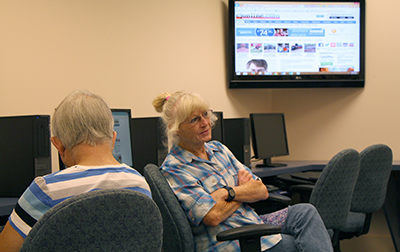
Theresa C. Hudson says that computers "terrify" her, but she's trying to learn.
One participant, Theresa C. Hudson, has fallen on hard times and is staying at the Topeka Rescue Mission and is seeking to move back to her hometown. The Mission pointed her to the library’s classes to improve her computer skills.
“I saw the transition to digital, and it was hard for me, so I shied away from it,” says Theresa. “I do want to better myself. Computers are very important. You can’t go on without them.”
Sheila M. Mason, 52, is undergoing vocational rehabilitation with local employment agency, Futures for Tomorrow. “When I was in college, we took notes by hand,” says Sheila. “In recent years, the Internet has been booming. It’s something I’ve got to have, and it’s never too late to learn.”
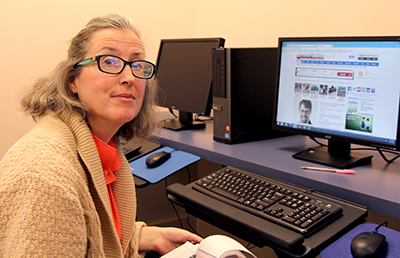
Sheila M. Mason works to develop computer skills that will boost her employability
“Our main purpose as a public library is to make sure people are connected in the community,” says Shari Schawo, computer trainer. “We give access to information and technology that might not be available otherwise. We’re one of the few places to teach this where we’re not going to try to sell you something.”
Digital literacy isn’t just a library initiative. DigitalLiteracy.gov is one example of government efforts to educate those left behind. But libraries are the leaders of a global movement to bridge the gap between the pre- and post-digital world.
“It’s a wonderful job,” says Shari. “Most people who come want to be there, and you can tell you’re helping improve their lives.”
The library offers five beginning classes and 15 “beyond the basics” classes. Participation is always free. Registration is required.









